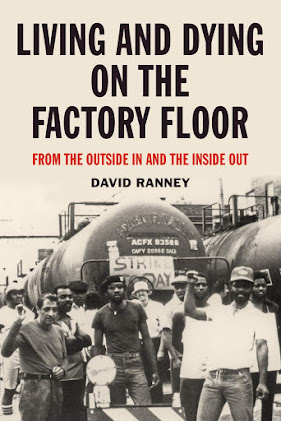Pages
- Home
- Ian Walker's New Society Articles
- 2023 Read
- 2023 ReRead
- 2023 Audiobook
- 2022 Read
- 2022 ReRead
- 2021 Read
- 2021 ReRead
- 2020 Read
- 2020 ReRead
- 2019 Read
- 2019 ReRead
- 2018 Read
- 2018 ReRead
- 2017 Read
- 2017 ReRead
- 2016 Read
- 2016 ReRead
- 2015 Read
- 2015 ReRead
- 2014 Read
- 2014 ReRead
- 2013 Read
- 2013 ReRead
- 2012 Read
- 2012 ReRead
- 2011 Read
- 2011 ReRead
- 2010 Read
- 2010 ReRead
- 2009 Read
- 2009 ReRead
- 2008 Read
- 2008 ReRead
- 2007 Read
Friday, June 11, 2021
February's Son by Alan Parks (Canongate Books 2019)
Tuesday, December 15, 2020
Living and Dying on the Factory Floor: From the Outside In and the Inside Out by David Ranney (PM Press 2019)
Saturday, November 14, 2020
A Tournament Frozen in Time: The Wonderful Randomness of the European Cup Winners Cup by Steven Scragg (Pitch Publishing 2019)
Tuesday, October 27, 2020
Charlie Savage by Roddy Doyle (Vintage 2019)
Friday, October 16, 2020
Before We Was We: The Making of Madness by Madness (with Tom Doyle) (Virgin Books 2019)
LEE: Roxy Music were a big influence. Myself, Mike and Chris went to see them at the Rainbow in Finsbury Park when the Stranded album had just come out. We saw David Essex going in, with a blonde lady friend, and they were dressed to the nines. Our mate John Jones goes, ‘He’s got a bit of a flash car.’ He had some convertible Merc and I can’t remember if the roof was down or not, but I know we got in it. Inside, he had one of those new-fangled eight-track tape players. We thought, ‘Oh, they must cost a fortune.’ So, we ended up having several of his eight-track tapes away.
Then, we bunked into the gig. Supporting was Leo Sayer. I got on someone’s shoulders – probably Mike’s, because he’s tall – and hauled myself up onto a window ledge, because I’d noticed it was on the latch. As I climbed up and looked in this window, there’s Leo Sayer, putting his makeup on. He’s got that clown’s outfit on that he wore around that time. He had all the gear on and one red cheek. He turned round, and I went, ‘Can you let us in?’ He was like, ‘Sorry, I can’t.’ I’m going, ‘We’ve come to see you, though, Leo …’ Have we fuck! But he said, ‘I can’t, obviously,’ and I descended back down.
MARK: Lee always told me that Leo Sayer mimed, ‘I can’t let you in,’ in Marcel Marceau style …
Thursday, October 24, 2019
Confessions of a Bookseller by Shaun Bythell (Profile Books 2019)
FRIDAY, 6 MARCH
Online orders: 2
Orders found: 2
Nicky in. She has hijacked the shop’s Facebook page again and left this typically bewildering post:
Good morning everyone!BGC is Nicky’s current nickname for me, and stands for Big Ginger Conundrum. ‘Tube’, for the uninitiated, is a Scottish insult, the politest interpretation of it being ‘idiot’.”
With a song in my heart, I skip in to work only to be berated for buying books off a customer for £45, whereas the BGC would have paid £175. Happy customer, happy me, disgruntled tube, sorry, I meant to say ‘boss’.






